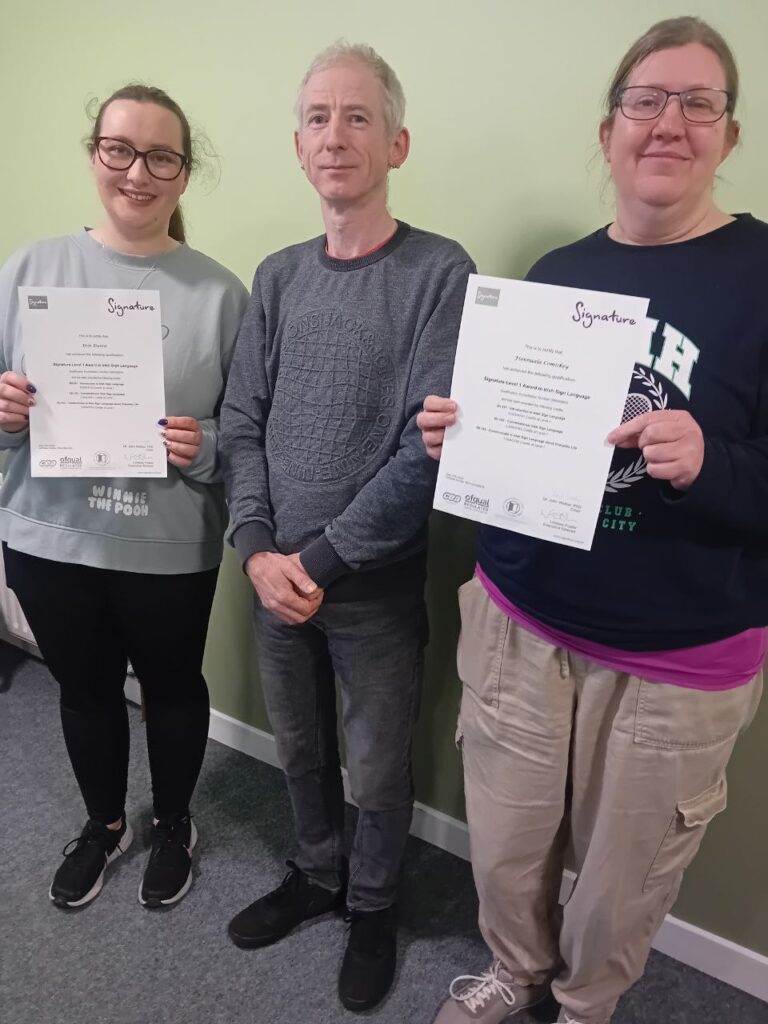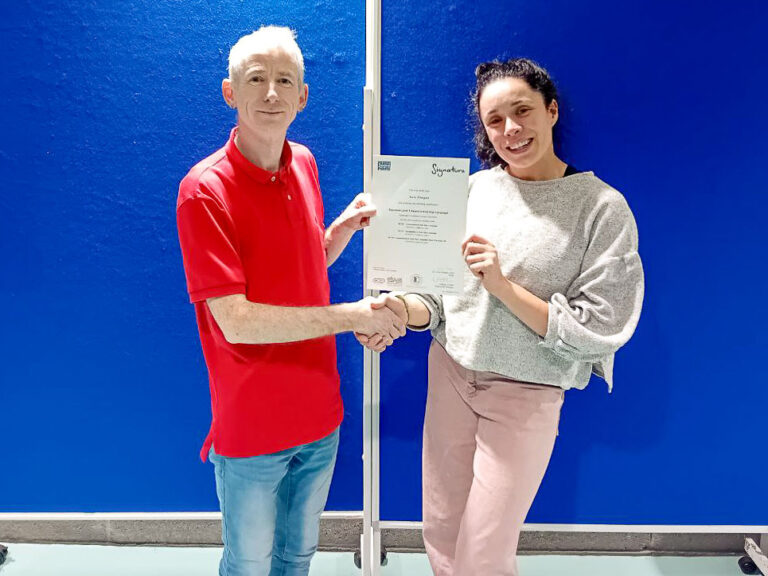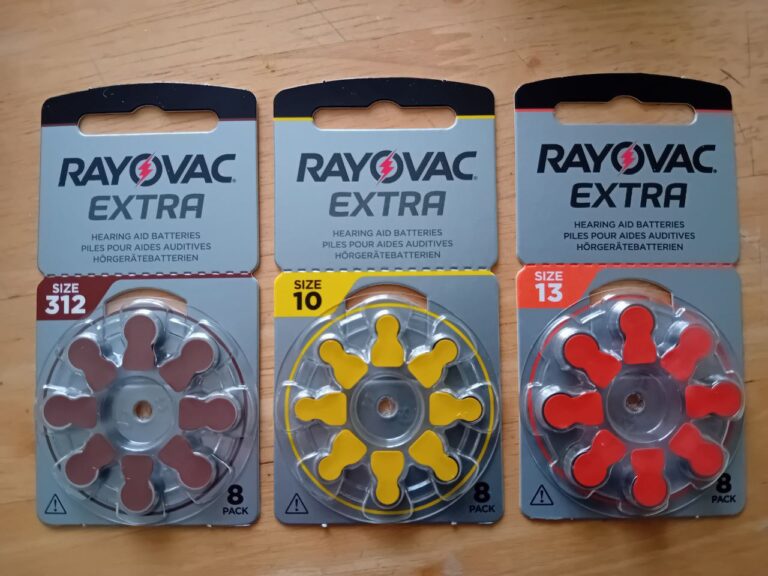Barking up the right tree with new breed of hearing aid
Emma McAuley is the first person in the Republic to benefit from the
Hearing Dogs for Deaf People scheme.
DUBLINER EMMA McAuley became the first person in the Republic to use a
specially trained hearing dog to act as her ears when Chester came
into her life last year.
Chester is a two-year-old “cockerpoo”, a cross between a Cocker
Spaniel and a Poodle, who was bred by the UK-based Hearing Dogs for
Deaf People organisation and underwent extensive training to prepare
him for his life as a working dog.
McAuley explains that Chester was placed with a “socialiser” at the
age of two months where he was trained in basic commands and being
walked on a lead, and got used to being around people. He then passed
his first assessment and proceeded to a four-month-long sound work
training programme with Hearing Dogs for Deaf People.
“It was at the end of this four months that our own partnership was
formed. I went over to one of their training centres in Yorkshire, the
Beatrice Wright Training Centre, where I spent five days learning how
to handle Chester in public and private, to give commands correctly,
how to groom him and what his daily care routine consisted of. It was
hard work but we bonded straight away, so this made things much easier
and very enjoyable, with a lot of laughs.”
Since January 2009, Chester has been her constant companion, waking
her up in the morning when the alarm clock goes off by pawing at the
duvet, and he alerts her when the mobile phone, the doorbell or the
cooker timer rings or when a colleague calls her in the office.
“He does this by coming and touching me with his paw and then taking
me to the source of sound. He is also trained to alert me to the
smoke/fire alarm and burglar alarm, both at home, in work and in
public places. With these sounds he alerts me and then drops to the
ground which tells me it is a danger sound.”
Chester does not moult, which is important for the office and clinical
environment McAuley works in as an audiologist with the DeafHear
organisation. “It is important that he does not have an effect on
someone who might have an allergy to dogs,” she points out.
She has a severe hearing loss but gets a lot of benefit from the use
of two hearing aids. “However, I find it very difficult to understand
speech when I am not lip reading the person,” she says. “I enjoy my
music, but probably more from the melodies and various instrumental
sounds as opposed to the actual lyrics.”
Chester has accompanied her to the National Concert Hall and the
cinema, to see Christy Moore in Vicar Street, to the Olympia, and all
around the city, as well as on flights to England.
“He is loved by staff and clients alike. He is especially popular with
children and he is a credit to his socialisers and trainers with how
well he behaves.”
McAuley’s deafness developed as a child because of a hereditary
condition which also affected her mother’s family.
“My father, being a doctor, was aware of the chance that I too might
develop a hearing loss. Thankfully, he made sure that I had regular
hearing tests and when tested as a nine year old it became apparent
that I had developed a mild/moderate hearing loss in both ears. I was
fitted with my first hearing aid when I started secondary school at
the age of 12.”
When she moved from junior to senior school at Alexandra College, she
found it difficult to cope in larger classes and dealing with a
specific teacher for each subject. At the end of her second year she
moved to a class of just eight at Pembroke School.
“All the teachers were made aware of my hearing loss and always made
sure that I never fell behind in my school work. It was because of
their good teaching skills and dedication in encouraging their
students that I left in 1989 with my Leaving Certificate and went on
to study and qualify as an accounting technician in Portobello
Business College.”
When she finished college she attended a DeafHear course on coping
strategies for hearing loss, her first experience of meeting other
people with a similar condition.
“It made me realise that I wasn’t the only pebble on the beach when it
came to hearing loss and gradually over the following years my
confidence to talk about my own deafness increased. Support services
have improved greatly in the past 15-20 years but there are many, many
hard-of-hearing/deaf people out there who are not aware of the support
services that exist.”
DeafHear provides a range of support services for deaf and
hard-of-hearing people and their families, friends and colleagues.
McAuley has worked with the organisation since 1997 when she joined it
as an administrator before qualifying as an audiologist five years
ago, a role she now combines with being team leader for the Dublin
South Resource Centre, covering south Dublin, Wicklow and Kildare.
She has seen an improvement in services for deaf people. Some cinemas
are now providing subtitled films, although screenings are at
unsociable times.
“Just because a film is subtitled doesn’t stop other people going to
see that showing, and subtitles benefit not just deaf and
hard-of-hearing people but also those whose first language is not
English.
“On the plus side, places like the National Gallery of Ireland really
do make an effort to include deaf and hard-of- hearing people. Once
every two months they put on a tour of a selection of paintings within
the gallery for sign language users, and another for hard-of-hearing
people complete with handouts and individual loops for those whose
hearing aids are compatible.”
The Abbey Theatre also shows performances with a sign language
interpretation or with Stagetext, a captioning service for arts
venues.
But she finds that the majority of communication with businesses and
State bodies is by telephone, which is difficult to use even for
people with mild or moderate hearing loss.
“When one tries to communicate by e-mail there are often delays of
several days before one gets a response. That is, of course, if an
e-mail address is provided. Banks, for instance, won’t deal with a
third party making a phone call on behalf of the deaf/hard-of-hearing
person, and this means in most cases that they have to take time off
work to visit their local branch instead.”
According to the UK’s Royal National Institute for Deaf People (RNID),
about one in every 1,000 children is deaf at three years old, rising
to two in every 1,000 children aged nine to 16. An estimated 760,000
people in Ireland have some degree of hearing loss.
“There are signs now, however, that people are presenting to their
audiologists at an earlier age than previous generations and this is
probably due to the increase in use of devices such as MP3 players,
and listening to them at loud levels for long periods of time,” she
says.
McAuley first became interested in acquiring a hearing dog when her
friend and colleague, Elizabeth Ward in Derry, received hers in
November 2004. “She, like me, has a severe hearing loss and through
her role as a hearing therapist she encouraged me to apply for a
hearing dog,” she says.
It was difficult to convince Hearing Dogs for Deaf People to extend
the service to McAuley because it currently has no plans for a service
in the Republic. The organisation has 14 working hearing dogs in
Northern Ireland and has placed more than 1,500 dogs in the UK since
1982. It has a staff member in the Republic who sources suitable dogs
for training that have been abandoned, rescued or donated.
“I took a bit of persuading to make the application, but I thought
that if I was successful, it would not only benefit me, but would
increase awareness of the importance of the role of a hearing dog in
the life of someone who is deaf or severely hard of hearing.
“Many people have approached me to find out how to go about getting a
hearing dog and are disappointed when I tell them that at the moment
they are not being placed in the Republic of Ireland,” she says.
Having Chester has also been an unexpected help in her dealings with
the public. Deafness is an invisible condition, but McAuley no longer
needs to tell people that she is deaf and no longer gets strange looks
when she fails to respond to someone talking because Chester has a
burgundy-coloured coat with Hearing Dogs for Deaf People written on
it.
In fact, she now finds she gets stopped in the street or in
supermarkets. “I am the one at the end of the lead. People are very
interested and intrigued to find out how Chester helps me. He
certainly does a lot to create awareness.”






